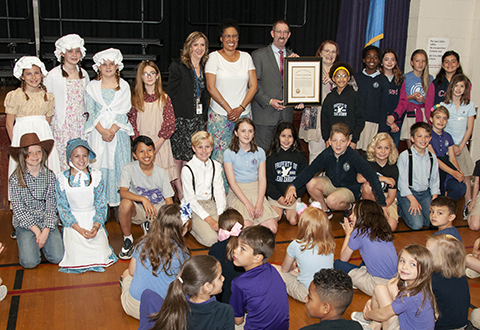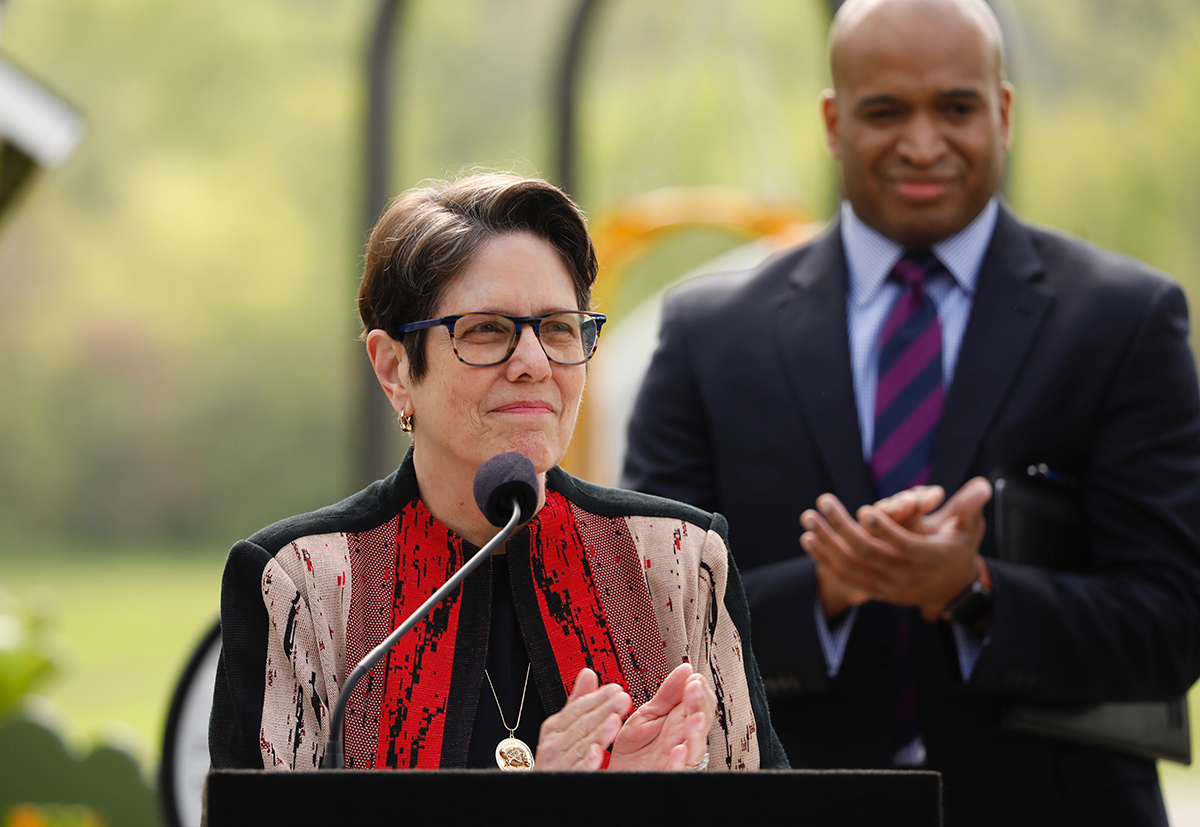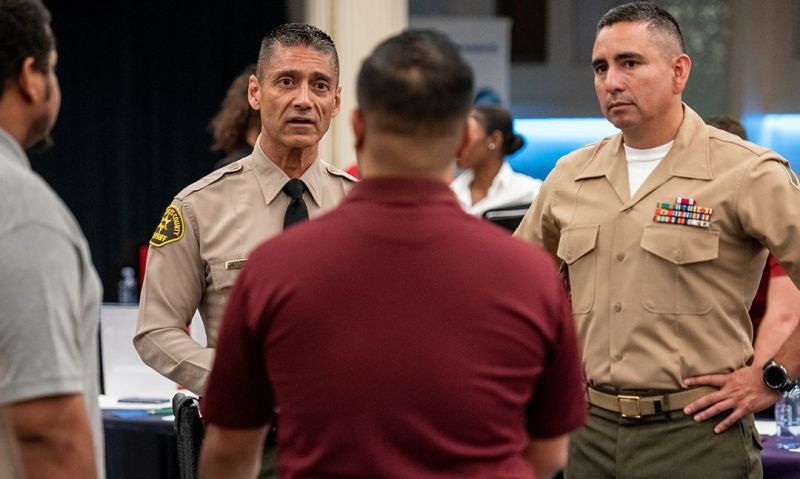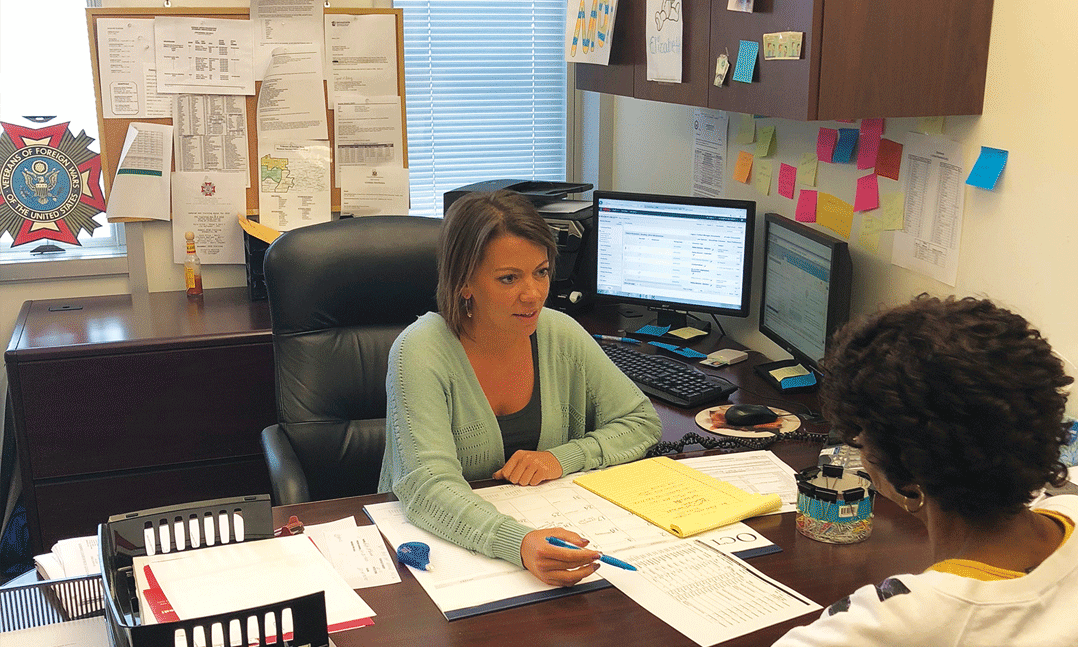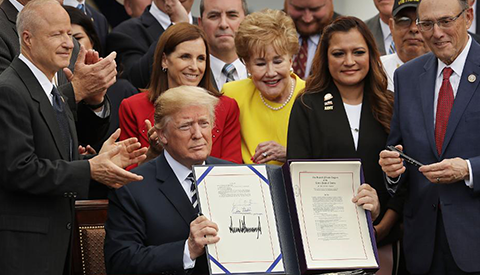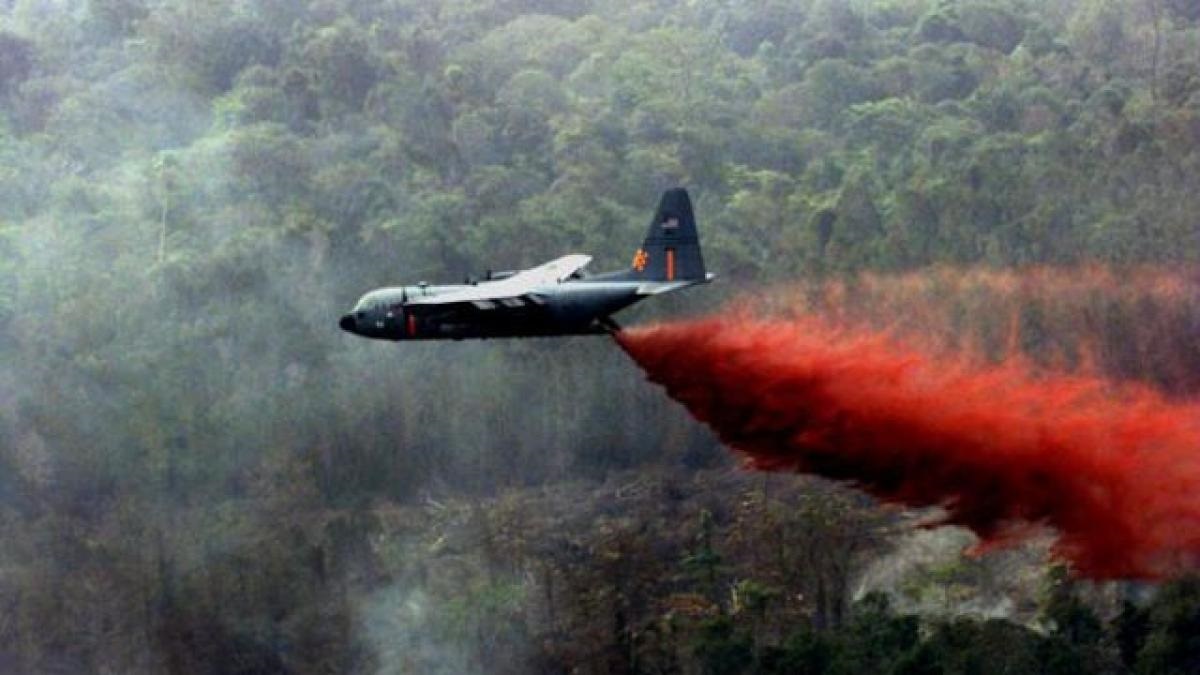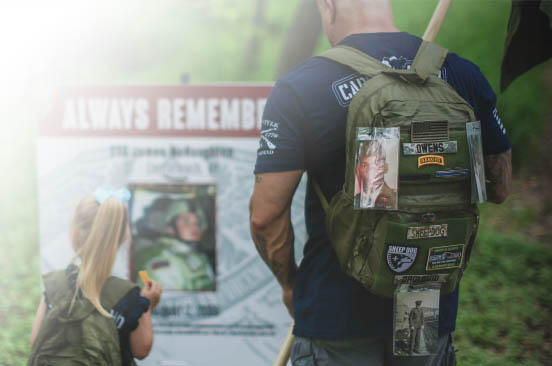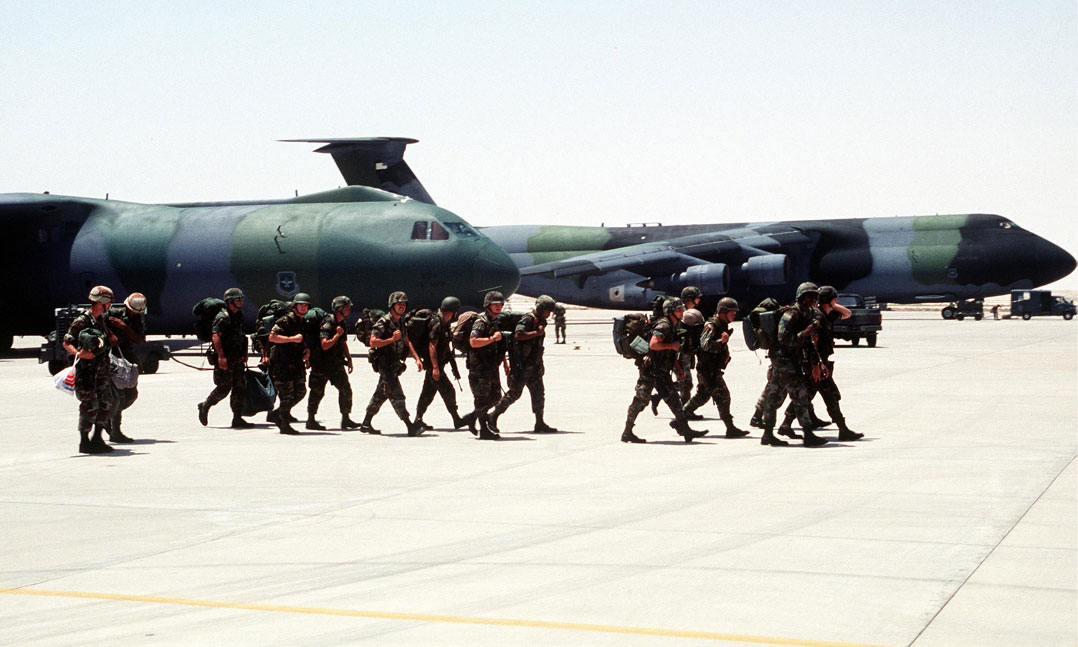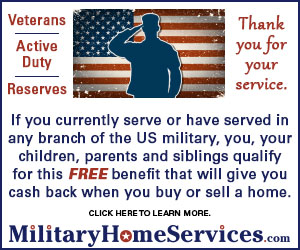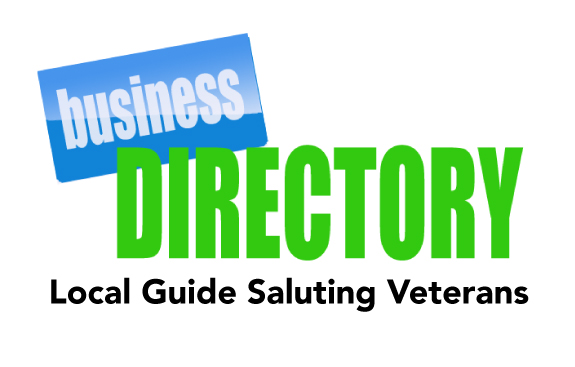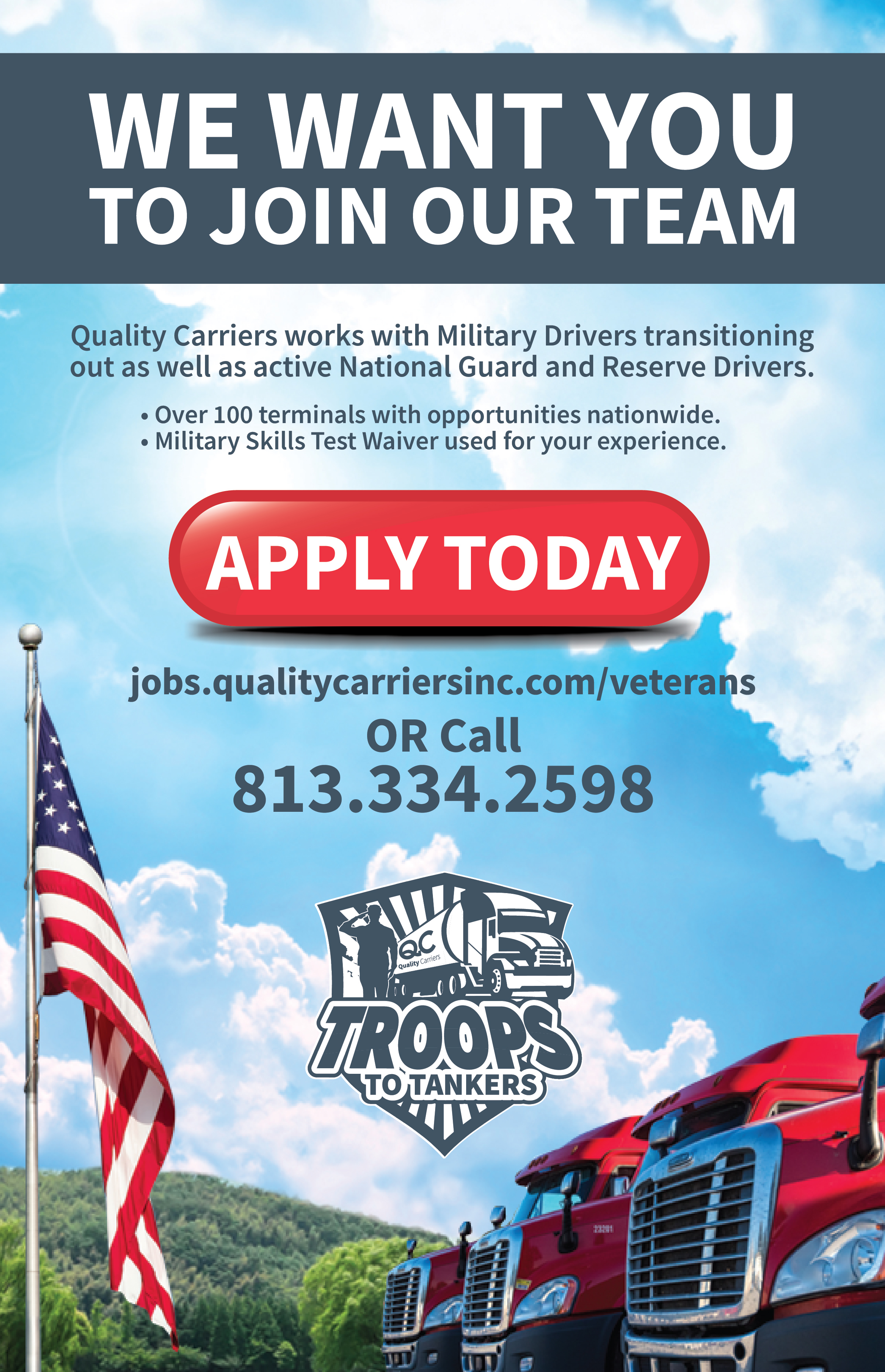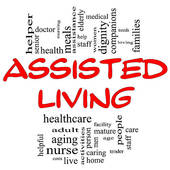News
In conjunction with the U.S. Department of Veterans Affairs’ (VA) community partnership efforts to combat Veteran homelessness, VA recently recognized Henry Zarrow International School in Tulsa, Oklahoma, for winning the 2018 End Veteran Homelessness Challenge.
Mark E. Morgan, director of the Eastern Oklahoma VA Health Care System, presented a certificate of appreciation to the school on April 26 for winning the friendly elementary school competition, which collected household and personal care items for Veterans transitioning from being homeless.
VA began the challenge in October 2018 in partnership with the National Association of Elementary School Principalsand the American Student Council Association, with plans to make it a yearly event.
“It’s thrilling to see our nation’s youth volunteer their time for this great cause,” said VA Secretary Robert Wilkie. “The generous donations collected by the students will help provide Veterans with basic household necessities as they settle into their new housing.”
The goals of the challenge are to encourage civic engagement among school-age children and help fill critical needs of Veterans transitioning from being homeless. Six elementary schools in six states participated in the 2018 challenge. In total, participating schools collected nearly $7,000 worth of personal care items and household goods to help Veterans transition to stable housing.
Other schools that participated in the 2018 challenge include: Eastman Avenue Elementary School in Los Angeles; Carrollwood Day School in Tampa, Florida; The Main Street Academy in College Park, Georgia; P.S. 54 in New York City; and Little Cypress Intermediate School in Orange, Texas. The collection drive ended in December.
In winning the event, Henry Zarrow International School collected more than $2,000 worth of items. Together, the six schools collected 881 toothbrushes, 746 pairs of socks, 557 containers of soap and body wash, and 428 tubes of toothpaste.
To date, more than 65 communities and three states — Connecticut, Delaware and Virginia — have effectively ended Veteran homelessness. Nationally, homelessness among Veterans has decreased nearly 50% since 2010. Since 2010, more than 700,000 Veterans and their family members have been permanently housed or prevented from becoming homeless nationwide because of interventions by VA and the U.S. Department of Housing and Urban Development.
Veterans who are homeless or at imminent risk of becoming homeless can contact their local VA medical center, where VA staff are ready to assist, or they can call 877-4AID-VET (877-424-3838).
Visit www.va.gov/homeless to find out how to help prevent and end homelessness among Veterans and subscribe to the online newsletter to be notified when the 2019 challenge begins.
VA JOINS LOCAL OFFICIALS IN CELEBRATING EFFECTIVE END OF VETERAN HOMELESSNESS IN LEXINGTON, KENTUCKY
Officials from the departments of Housing and Urban Development (HUD) and Veterans Affairs (VA) joined the mayor and representatives of the Lexington-Fayette Urban County Continuum of Care (CoC) on April 25 to celebrate the effective end of Veteran homelessness in Lexington, Kentucky.
Lexington joins more than 65 other communities and three states — Connecticut, Delaware and Virginia — that have effectively ended Veteran homelessness, identifying every homeless Veteran by name and implementing systems to put them on the path to permanent housing.
“The progress achieved by Lexington is a direct reflection of the power of collaboration at the local, state and national levels,” said VA Secretary Robert Wilkie. “As each new community effectively ends Veteran homelessness, it is further proving that the strategies we are using to help the most vulnerable Veterans become housed are working. Congratulations to Mayor Linda Gorton and everyone in Lexington who had a hand in ensuring the women and men who bravely served our country have a place to call home.”
Achieving an end to homelessness is a victory for Lexington-Fayette Urban County Continuum of Care CoC — the local homeless services planning body —made possible because of joint efforts with many different organizations, including the Lexington Office of Homelessness Prevention and Intervention; area homeless service providers; Kentucky Department of Veterans Affairs; VA; HUD; emergency shelters; and a host of other private, public and nonprofit organizations.
HUD and VA have worked aggressively to help homeless Veterans secure stable housing through the strategic use of HUD-VA Supportive Housing (HUD-VASH) vouchers and alignment with Home Together, the federal strategic plan to prevent and end homelessness.
Since 2010, the combined efforts of HUD and VA have helped cut Veteran homelessness nearly in half, including a 5% decline between January 2017 to January 2018. Since 2010, more than 700,000 Veterans and their family members have been permanently housed or prevented from becoming homeless nationwide because of interventions by HUD and VA.
The achievement in Lexington does not mean that Veterans may not become homeless in the future in the community. However, it does means that HUD, VA and the US Interagency Council on Homelessness (USICH) have affirmed that Lexington has an infrastructure in place to quickly help Veterans who are homeless or at risk of homelessness secure or remain in permanent housing.
Veterans who are homeless or at imminent risk of becoming homeless can contact their local VA medical center, where VA staff are ready to assist. They can also call 877-4AID-VET (877-424-3838).
Visit www.va.gov/homeless to find out how to help prevent and end homelessness among Veterans.
Hundreds of veterans lined up outside Hollywood Post 43 on April 23 waiting for the doors to open, but this time it was not for a film screening or comedy show. The stars of this event were job seekers looking to network, improve their skills and apply directly for careers with nearly 50 potential employers ready to hire nationwide.
The American Legion sent national leaders to participate in the U.S. Chamber of Commerce Foundation’s Hiring Our Heroes (HOH) initiative, a nationwide effort to connect veterans, servicemembers and military spouses with meaningful employment opportunities.
Rodney Rolland, director of Human Resources for The American Legion National Headquarters, led a workshop on resume building, networking and interviewing. After the class Rolland was available to review individual resumes and offer advice. “This is kind of my side job, I step outside my typical role as a HR director and come out and let veterans hear from real HR people what we particularly look for in resumes,” said Rolland. “The hiring process is not always just about the hiring manager. There is a process with most companies.”
Rolland’s training addresses ways veterans can prepare their resumes to make them best qualified for jobs they are seeking. “Veterans typically get very basic instructions on how to present their resume, and how to do interviews,” Rolland explained. “What they don’t get are those small details that separate a good candidate from a great candidate. We all know being a great candidate is what actually gets you a position. So I serve as that piece to minimize the communication barrier that often exists between companies and veterans being able to sell themselves for opportunities. “
Working with the U.S. Chamber of Commerce’s vast network of state and local chambers and strategic partners from the public, private, and non-profit sectors, Hiring Our Heroes goal is to create a movement across America where veterans and military families return every day.
Other resources like the Marine for Life Program (M4L) were also available. The Marine for Life Network is dedicated to providing connections to opportunities for transitioning Marines, veterans and spouses. One of M4L’s primary efforts is through providing visibility on social media platforms with a strong focus on LinkedIn.
Mike Miller, director of Private and Public Engagement for the Department of Defense, described how they have put a lot of time and energy into revamping what they do over the past five years. “Part of that is partnering with Hiring our Heroes, part of that is supporting what employers are doing,” said Miller. “To ensure that we are putting people back into society that we’ve provided information to about what the outside world looks like and how to engage with you (employers), and to engage with you to help you better understand what talents and skills they are brining.”
Tony Forbes, regional vets' employment coordinator for the U.S. Department of Labor, explained some of the programs available. He introduced the Registered Apprenticeship program that provides paid on-the-job learning and academic instruction that reflects specific industry needs. This program works with Department of Labor and their state partners with numerous training opportunities available to develop veterans into the skilled workers our economy needs to thrive. Registered Apprenticeships are not just for trades like plumbing and welding. DOL’s Office of Apprenticeship works with 150,000 employers and has created programs for over 1,000 occupations. They recently announced $100 million in grants to develop and implement innovative, high-quality registered apprenticeship programs www.dol.gov/apprenticeship/grants.htm
Forbes also explained the hiring vets medallion program, which is the only federal-level veterans' employment award that recognizes a company or organization's commitment to veteran hiring, retention and professional development. “It’s a tool to let veterans know that you are a veteran friendly, veteran ready employer,” said Forbes. “We are encouraging transitioning servicemembers to look for employers who have the medallion program identifier.”
Communication was a common theme throughout the hiring event. “Being a veteran myself makes my class a little more enticing because I don’t need to spend a lot of time developing that chemistry that’s typically necessary with veterans,” said Rolland. “I minimize the communication barrier that often exists between civilians giving the class and the veteran. Often veterans struggle with receiving the information. As a Marine Corps veteran, I can relate.”
The American Legion works with the Chamber, high-profile employers and other groups in support of today’s veterans and transitioning servicemembers who often face obstacles to gainful employment in the civilian world.
“Today’s military isn’t yesterday’s military,” said Miller. “This highly technical force that’s coming out has leadership, and experience, and technical capabilities that far exceed anything that we’ve ever seen. That’s the big picture, that’s why we do it, that’s why we’re grateful for what these employers are doing, we know that it takes a lot of energy, a lot of passion, and we thank them for that.”
Rolland agreed and pointed out the bigger picture.
“What we’re trying to do is not just get veterans jobs, but get them careers,” he said. “If that is happening, whether that comes directly from us or from others, then I think that’s great. I think the communication barrier is shrinking. I think a lot of times we overthink it, when at the end of the day it’s not that veterans are not qualified or fit, it’s helping them with the ability to get their information over to civilians and vice versa. If we can find a way to minimize that communication gap, then veterans find more opportunities.”
Iraq War veteran Elizabeth Salvador has been a VFW-accredited service officer for five years, connecting expatriate vets with VA services
Elizabeth Salvador, a service officer at the VA Pittsburgh Regional Office, recently helped a veteran living in Africa end an 11-year-long appeals process.
Salvador works on foreign claims from veterans who live outside of the United States. She said that in this particular case, the veteran initially was given a zero percent rating because he was unable to have an exam to determine the “current level of severity” for his conditions.
“He’s in a really, really rural area,” said Salvador, a member of VFW Post 914 in West Mifflin, Pa. “He has to travel about two hours just to get to a phone.”
VFW-accredited service officer Elizabeth Salvador works with a veteran’s spouse on a claim. Salvador, a member of VFW Post 914 in West Mifflin, Pa., is the only staff member in her office who handles both foreign and local claims. Photo courtesy of Elizabeth Salvador.
The veteran, according to Salvador, received roughly $70,000 for “quite a few conditions” in mid-January.
She added that part of the length of the appeals process was because he lives overseas.
Salvador has been a service officer in Pittsburgh for nearly five years. She took on the role after being laid off from a previous job.
“I needed health care because my insurance wasn’t covered anymore,” Salvador said. “And I just wasn’t sure [of] the ins and outs.”
She went to her local Post, of which she now is a member, and ultimately learned of the opening at the regional VA office.
She said the most challenging aspect of her work is the foreign cases, along with time zone differences. “A lot of times there’s language barriers,” Salvador said. “Even sometimes the veterans themselves — we have a lot of veterans in Panama and a lot of them don’t speak English.”
The most common case she works on is related to mental health. Salvador said when a veteran wants to file a PTSD claim, the VA requires that the original diagnosis come from a VA doctor.
“When these veterans are overseas looking for service connection for mental health, that becomes really hard,” said Salvador, who served in Iraq from 2006 to 2007 with the 886th Expeditionary Security Force Squadron.
Salvador said she guides veterans through the process, understanding that some do not know the requirements and become “discouraged” when their claim is denied.
Countries such as Germany and Italy have service officers and VA employees, but in other locations, Salvador said, making “initial contact” is harder.
Salvador’s office handles roughly 400 cases per month.
She said the most rewarding part of her job is providing “basic information” of what veterans are entitled to, such as health care and education — regardless of whether or not they have service-connected injuries.
For anyone considering becoming a VSO, Salvador said it is “a lot of work, but it’s good work.”
“It’s not a very easy job, but if they’re looking to help veterans, this is definitely a place to be,” Salvador said.
As the one-year anniversary of President Trump’s signing of the VA Maintaining Internal Systems and Strengthening Integrated Outside Networks (MISSION) Act of 2018 approaches on June 6, the U.S. Department of Veterans Affairs (VA) is making significant strides in implementing major improvements to community care for Veterans.
“The Veteran is at the center of everything we do,” VA Secretary Robert Wilkie said. “Through the MISSION Act, Veterans will have more choices than ever in getting timely, high-quality care. Most important, Veterans will be able to decide what is important and best for them.”
The MISSION Act will strengthen VA’s health care system by improving both aspects of care delivery and empowering Veterans to find the balance in the system that is right for them,
A key aspect of the MISSION Act is the consolidation of VA’s community care programs, which will make community care work better for Veterans and their families, providers and VA employees. When this transition is complete, the following will occur:
Veterans will have more options for community care.
Eligibility criteria for community care will be expanded, including new access standards.
Scheduling appointments will be easier, and care coordination between VA and community providers will be better.
Eligible Veterans will have access to a network of walk-in and urgent care facilities for minor injuries and illnesses.
“Transitioning to the new eligibility criteria for community care should be seamless for Veterans,” Wilkie said. “Veterans will continue to talk to their care team or scheduler as they have been doing to get the care they need.”
VA also has been working closely with community providers to ensure Veterans have a positive experience when receiving community care. For example, VA has developed education and training materials to help community providers understand some of the unique challenges Veterans can face.
Going forward, community care will be easier to use, and Veterans will remain at the center of their VA health care decisions.
In addition to information VA has made available digitally, Veterans enrolled in VA health care can expect to receive a letter in the mail providing details on where to go for more information.
For more information about community care under the MISSION Act, visit https://www.blogs.va.gov/VAntage/58621/new-eligibility-criteria-a-major-improvement-over-existing-rules/.
WASHINGTON — The U.S. Department of Veterans Affairs (VA) added a text messaging feature to the Women Veterans Call Center on April 23, providing another convenient way for women to seek information about VA benefits, health care and available resources.
Women Veterans can now text 855-829-6636 to receive answers and guidance about VA services.
“We want to make it as easy as possible for women Veterans to get answers about eligibility requirements, benefits, services and more,” said VA Secretary Robert Wilkie. “By offering new methods of communication, such as texting, we can reach more women Veterans and support their health care needs more quickly.”
The Women Veterans Call Center is staffed by trained, compassionate female VA employees, who can provide and link callers to available resources, such as health care, benefits and cemetery information via phone, chat and now text. The new texting feature aligns this service with other VA call centers that provide information and assistance to Veterans who are in crisis, at risk for suicide and becoming homeless.
VA works to meet the unique requirements of women, while offering privacy, dignity and sensitivity to gender-specific needs. Since April 2013, the call center has received nearly 83,000 inbound calls and has initiated almost 1.3 million outbound calls. As the number of women Veterans continues to grow, VA is expanding its outreach to ensure they receive enrollment and benefit information through means that are user-friendly and responsive.
Women are among the fastest-growing Veteran demographics, accounting for more than 30% of the increase in Veterans who served between 2014 and 2018. The number of women using VA health care services has tripled since 2000, growing from about 160,000 to over 500,000 today. This continued growth underscores VA’s commitment to enhancing communication and outreach to the growing population of women Veterans.
For more information about the Women Veterans Call Center, visit Women Veterans Health.
WASHINGTON — As part of the U.S. Department of Veterans Affairs’ (VA) efforts to provide the best mental health care access possible, VA is reminding Veterans that it offers all Veterans same-day access to emergency mental health care at any VA health care facility across the country.
“Providing same-day 24/7 access to mental health crisis intervention and support for Veterans, service members and their families is our top clinical priority,” said VA Secretary Robert Wilkie. “It’s important that all Veterans, their family and friends know that help is easily available.”
VA’s Office of Mental Health and Suicide Prevention is the national leader in making high-quality mental health care and suicide prevention resources available to Veterans through a full spectrum of outpatient, inpatient and telemental health services.
Additionally, VA has developed the National Strategy for Preventing Veteran Suicide, which reflects the department’s vision for a coordinated effort to prevent suicide among all service members and Veterans. This strategy maintains VA’s focus on high-risk individuals in health care settings, while also adopting a broad public health approach to suicide prevention.
VA has supported numerous Veterans and has the capacity to assist more. In fiscal year (FY) 2018, 1.7 million Veterans received Veterans Health Administration (VHA) mental health services. These patients received more than 84,000 psychiatric hospital stays, about 41,700 residential stays and more than 21 million outpatient encounters.
Nationally, in the first quarter of FY 2019, 90% of new patients completed an appointment in a mental health clinic within 30 days of scheduling an appointment, and 96.8% of established patients completed a mental health appointment within 30 days of the day they requested. For FY 2018, 48% of initial, in-person Primary Care — Mental Health Integration (PC-MHI) encounters were on the same day as the patient’s PC encounter. During the first quarter of FY 2019, 51% of initial, in-person PC-MHI encounters were on the same day as the patient’s PC encounter.
Veterans in crisis – or those concerned about one – should call the Veterans Crisis Line at 800-273-8255 and press 1, send a text message to 838255 or chat online at VeteransCrisisLine.net.
(Stars and Stripes)
WASHINGTON — A group of lawmakers introduced legislation that would add nine more diseases to a list of conditions presumed to be caused by the chemical herbicide Agent Orange, giving veterans who suffer from them a fast-track to Department of Veterans Affairs disability compensation and health care.
The Keeping Our Promises Act, introduced last week, adds prostate cancer, bladder cancer, hypothyroidism, hypertension, stroke, early-onset peripheral neuropathy, AL amyoloidosis, ischemic heart disease and Parkinson-like syndromes to a list of diseases presumed to be caused by Agent Orange exposure during the Vietnam War.
Researchers with the National Academy of Medicine released findings in November that there was “suggestive” evidence that eight of the diseases could be caused by Agent Orange. For hypertension, researchers found that “sufficient” evidence exists.
“American heroes affected by Agent Orange deserve the peace of mind knowing that the federal government recognizes the existing link between their exposure and illness,” said Rep. Brian Fitzpatrick, R-Penn., one of eight lawmakers who banded together to introduce the legislation.
VA experts have begun a “formal, deliberative review” of the National Academy of Medicine’s latest report, VA Press Secretary Curt Cashour said Tuesday. The review is expected to be complete in the summer, at which time the agency will make recommendations about presumptive conditions, he said.
During a Senate hearing March 26, Richard Stone, the executive in charge of the Veterans Health Administration, guessed the review would be complete within 90 days.
“We’re working our way through that right now,” Stone said of the national academy report.
Recommendations would be sent to VA Secretary Robert Wilkie, who would choose when – and whether – to act on them.
The VA previously recommended that some of the conditions be added. After the last National Academy of Medicine report in 2016, the VA took 20 months before it sent recommendations to the White House that bladder cancer, hypertension, hyperthyroidism and Parkinson’s-like tremors be added to the list.
The recommendation hasn’t made it past the White House’s Office of Management and Budget. Last year, VA officials told the House Committee on Veterans’ Affairs that the Office of Management and Budget is waiting for results of ongoing mortality and morbidity studies, which could provide more evidence of a connection between the diseases and Agent Orange.
On Tuesday, Cashour said some of those results will be published as early as mid-2019.
But some lawmakers don’t want to wait on the executive process.
Fitzpatrick, along with Reps. Annie Kuster, D-N.H., Bruce Westerman, R-Ark., Scott Tipton, R-Colo., Elise Stefanik, R-N.Y., Joe Cunningham, D-S.C., Brendan Boyle, D-Penn., and Mike Thompson, D-Calif., are trying to use a legislative route.
Boyle estimated it would help tens of thousands of Vietnam War veterans.
“This bipartisan legislation makes good on that promise by ensuring all servicemembers exposed to these herbicides and chemicals as a part of their military service get the health care they need,” Boyle said in a statement. “Not one more servicemember should be forced to suffer in this way without the best care our federal government has to offer.”
The bill is likely to face an uphill battle in Congress, where veterans and advocates have fought for years to prove toxic exposures and secure VA benefits.
Attempts failed in Congress last year to approve benefits for “blue water” Navy veterans – sailors who served on ships off the coast of Vietnam and argue they were exposed to Agent Orange. The veterans could be close to getting VA benefits, but the victory was won in court, not Congress.
The VA opposed the legislative effort to approve benefits for blue water Navy veterans, citing high costs and insufficient scientific evidence. The agency has not yet issued an opinion on the Keeping Our Promises Act.
Wentling.nikki@stripes.comTwitter: @nikkiwentling
WASHINGTON — The U.S. Department of Veterans Affairs (VA) today announced that its National Cemetery Administration (NCA) is partnering with Carry The Load, a nonprofit organization that provides active ways to connect Americans to the sacrifices made daily by the U.S. military, Veterans, first responders and their families.
NCA will participate in Carry The Load’s Memorial May awareness campaign, which covers 40 states, leading up to Memorial Day 2019.
Participants will march or ride bicycles in an 11,500-mile national relay along three routes — East Coast, West Coast and Midwest — handing off an American flag every few miles. Each participant walks or rides to “carry the load” for a deceased military service member or Veteran, remembering them and honoring their sacrifice. Twenty-six VA national cemeteries in 17 states will serve as relay points for Carry The Load memorial marches.
“The VA is delighted to partner with Carry The Load in this important initiative of honoring those who sacrificed for our freedom to ensure no Veteran ever dies,” said VA Secretary Robert Wilkie. “It’s a mindset that every one of VA’s employees emulates. And nowhere is the sacrifice made by our Veterans more evident than in our national cemeteries.”
In conjunction with the Carry The Load national relay, each VA national cemetery along the three routes will host a brief ceremony unveiling a commemorative plaque dedicated to America’s fallen Veterans and their families. To view the list of the 26 participating VA national cemeteries and the dates and times they will host the Carry The Load relay and “Tribute to the Fallen and Their Families” plaque dedication ceremonies, download the calendar.
VA operates 136 national cemeteries and 33 soldiers’ lots and monument sites in 40 states and Puerto Rico.
For Veterans not buried in a VA national cemetery, VA provides headstones, markers or medallions to commemorate their service. Information on VA burial benefits is available from local VA national cemetery offices, online at https://www.va.gov/burials-memorials/ or by calling VA regional offices toll-free at 800-827-1000.
To make burial arrangements at any open VA national cemetery at the time of need, call the National Cemetery Scheduling Office at 800-535-1117.
The 28th anniversary of the conflict’s cease fire is April 11
KANSAS CITY, Mo. – Nearly 30 years later, the Veterans of Foreign Wars of the U.S. continues to honor the service and sacrifice of our nation’s Gulf War veterans. Tomorrow marks the 28th anniversary of the cease fire, and we recognize and thank the men and women who fought and selflessly sacrificed to liberate a nation from tyranny.
Often forgotten, our speedy victory in Kuwait was not achieved without sacrifice. Nearly 700,000 American soldiers, sailors, airmen, Marines, and Coast Guardsmen served in the Gulf War, and we paid a steep price for victory resulting in 374 dead, 467 wounded, and two servicemen whose remains have yet to come home.
The VFW remains dedicated to honoring all Gulf War veterans – men and women who accomplished their objectives without fail and helped to shape a truly historic event in American history. Today, and every day, we thank them for their service.
